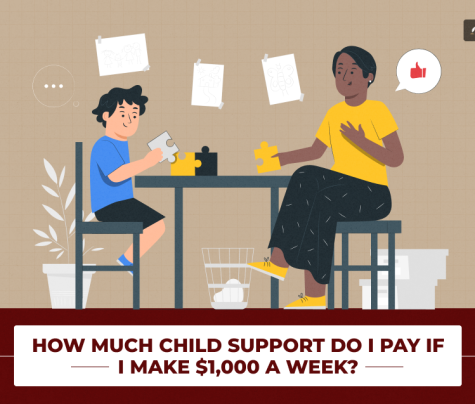
“How long does it take to get emancipated?” This is a question that you must have thought about at least once in your life!
Emancipation of minors is a vital legal process that allows a juvenile to be freed from the control of parents or guardians before attaining the age of majority.
In this legal process, the guardian or parents are also freed from the responsibility of managing the minor.
But how long do you need? What is the eligibility? And how do you apply for emancipation? There are simply so many questions that most of us have!
If you are trying to reach for the answers, you have reached the right place! So, keep on reading this blog till the end to learn more and thank me later…
What is Emancipation?
The age usually varies from region to region, from the age of 18 or 19 in most areas.
The law expects that until the minor has attained the majority, their parents provide them shelter, food, and clothing. During this period, the parent or legal guardian can choose the medical assistance, living location, and education the child would receive.
The process of emancipation results in the minor individual living their life on their terms. This means the parent, or the legal guardian would not have any say regarding the emancipated individual.
During this period, the emancipated minor has the right to keep their job earnings, decide on accommodation, and make other vital decisions previously taken by the parent or legal guardian.
How Long Does It Take to Get Emancipated?

The process of getting emancipated, where a minor legally becomes independent of their parents or guardians, can vary widely in terms of time.
Typically, it takes anywhere from a few weeks to several months, depending on the complexity of the case and the state’s specific laws.
Let’s break down what can influence how long it takes to get emancipated.
First, each state has its own laws and requirements for emancipation. Some states allow minors to petition for emancipation as early as age 16, while others may have different age requirements.
The specific rules for how to file, what paperwork to complete, and what evidence is needed all vary by location. Because of these differences, knowing your state’s requirements is the first important step.
Once the petition is filed, the court will usually schedule a hearing. The time between filing and the hearing date can vary, but it typically takes a few weeks to a few months.
During the hearing, the judge will review the case to decide if emancipation is in the minor’s best interest.
To make this decision, the judge will look at things like financial independence, living situation, maturity level, and any other factors that show the minor is capable of handling adult responsibilities.
If the case requires additional documentation or if there are objections from parents, it might add extra time to the process. In some cases, the court may ask for follow-up hearings or more evidence, which can delay a decision.
What Emancipated Minors Can And Cannot Do?

Generally, an emancipated minor acts as an adult within society, but specific rules regarding emancipation can vary from state to state. An emancipated minor can do the following things:
- Enter into legally valid contracts, which could include real estate purchases or rental of apartments
- Live apart from parent or legal guardians
- Enroll in any educational institutions
- Sue or be sued in a court of law
- Apply for a work permit
- Keep income earned from a job
- Make decisions related to healthcare, including birth control and abortion.
Various states within the US have been noted to produce limits regarding the doings of an emancipated minor.
The boundaries that are set against emancipated minors are:
- Get married without the consent of parents
- Quit schooling
- Buy or drink alcohol
- Vote or acquire a driving license before attaining the age of majority
Ways A Minor Can Acquire An Emancipation

Eligibility for emancipation varies from state to state within the United States. Minors can acquire emancipation from parents or legal guardians.
Here are some of the ways in which a minor can emancipate are as follows:
Emancipation By Marriage
In most states of the United States, minors acquire the award of emancipation through the occurrence of marriage. However, children seeking to marry are mandated to comply with state marriage requirements.
States in the United States have been recognized for their ability to set a minimum age for marriage and often require consent from parents or legal guardians or permission from the court to get married.
For instance, a minor willing to get married in California must be of the minimum age of 14, be accompanied by a legal guardian or parent, and appear before the court (Cal. Fam. Code. §. 302).
Emancipation By Court Permission
Certain states in the United States are allowed the process of emancipation by an order of the court. Usually, the minor must be at the age of 16 to be emancipated in most states in the US. On the other hand, California is one state that allows minors as young as 14 years to participate in the emancipation process (Cal. Fam. Code §. 7120).
The court grants emancipation to a minor if it has enough evidence that the decision would serve the minor’s best interest. The court would consider the purpose of giving freedom to a child.
These considerations include:
- Whether the minor can stay self-sufficient (these might include the ability for the minor to be employed, which is opposed to government aid or welfare)
- The minor has been able to make alternative living arrangements that do not include their parent or legal guardian
- Whether the minor is going to school or has acquired a diploma from the school
Emancipation By Military Enlistment
Military policies require enlistees to have minimum eligibility for having a high school diploma or GED.
This is because emancipation is a complex legal process that might not be in the knowledge of a minor. Due to this, it is crucial to hire experienced lawyers to assist you in completing your emancipation process successfully.
Tips To Choose An Emancipation Lawyer
Hey there, freedom seekers! So, you’ve decided to break free and explore the world of emancipation, but finding the right legal guide feels like navigating a maze? Fear not!
Today, we’re dishing out some tasty tips to help you choose the perfect emancipation lawyer for your journey to independence.
Know What You Want
Before you start lawyer shopping, take a moment for some introspection. What do you need from your emancipation? Define your goals, whether escaping an unhealthy environment or gaining financial control.
Knowing your needs will guide you to a lawyer with the right expertise.
Find a Specialist
Look for a legal matchmaker specializing in family law and, more specifically, emancipation cases. You wouldn’t hire a chef to fix your car, right? Similarly, find a lawyer with a track record of success in emancipation cases.
Ask Around
Word of mouth is a powerful tool. Talk to friends, family, or anyone you trust who might have gone through a similar process. Personal recommendations can give insights into a lawyer’s communication style, effectiveness, and awesomeness.
Check Those Credentials
When it comes to choosing an emancipation lawyer, credentials matter. Check their educational background, years of experience, and any special certifications related to family law. Moreover, a lawyer with an impressive paper trail is like having a reliable map for your journey.
Compatibility
Choosing a lawyer is a bit like picking a dance partner. You want someone who’s not only skilled but also someone you can vibe with. Schedule a consultation – it’s like a legal first date. Gauge their communication style, responsiveness, and overall personality. Moreover, you want a lawyer who gets you.
Fees and Budget
Let’s talk money – it’s a crucial aspect of any legal journey. Discuss fees upfront. Some lawyers work hourly, while others may offer a flat fee. Moreover, ensure you’re clear on the financial arrangement and, most importantly, that it aligns with your budget.
Online Review
In the digital age, a treasure trove of information awaits at your fingertips. Dive into online reviews. What are people saying about the lawyer? Look for patterns and pay attention to both positive and negative feedback. Moreover, it’s like having a sneak peek into your potential legal partner’s reputation.
Ask About Strategy
During your consultation, don’t shy away from the tough questions. Ask about their strategy for your specific case. How do they plan to approach it? What potential roadblocks do they foresee? Moreover, a lawyer with a clear game plan is your best ally in the quest for emancipation.
Trust Your Gut
Last but not least, trust your instincts. If something feels off, it probably is. Your gut is a reliable compass. Emancipation is a significant step. Moreover, having a lawyer you trust and feel comfortable with is paramount.
Know the Right Way, Go the Right Way
Emancipation is a great way through which a minor will be able to act as an independent adult within society.
Moreover, this will also give the minors a sense of independence and prepare them for life as responsible adults. It might be difficult for parents to accept the early leaving of their children from their families.
But it is crucial for a minor seeking to acquire emancipation that act in their best interests. So, consulting and experienced lawyer for the emancipation process is advisable.
Read Also:
- Legal Considerations for Dementia Patients in Personal Injury Cases
- Can A Family Lawyer Help If You Experiencing Domestic Violence
- How Long-Term Disability Insurance Covers Chronic Diseases?











0 Reply
No comments yet.